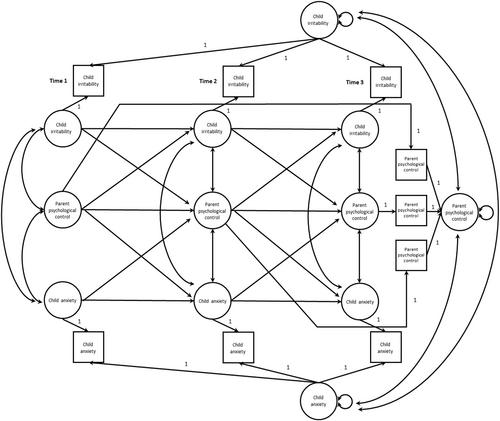Transactional associations of child irritability and anxiety with parent psychological control in Taiwanese school-aged children
Abstract
Background
Child irritability and anxiety are associated with parent psychological control; yet their transactional relations over time are not well-characterized at the within-person level. Research addressing generalizability of past Western-based literature in non-Western, collectivist community samples is lacking.
Methods
Sample comprised 285 children aged 8.8–11.4 years (145 girls; Mage = 9.9 years, SD = 0.6) in Northern Taiwan. Participants were assessed at baseline (T1), 6-month (T2), and 12-month (T3) follow-ups. Child irritability and anxiety symptoms were assessed using parent-rated Child Behavior Checklist. Parent psychological control was assessed using the parent- and child-rated Psychological Control Scale. Within-person processes were specified using the random-intercept cross-lagged panel models.
Results
Models showed that psychological control predicted increased child irritability when analyzing parenting data from parents and children. However, the lagged effect from psychological control to child anxiety was only seen in parent-rated parenting data. We found limited evidence for a back-and-forth transactional pathway among constructs. Child irritability predicted increased child anxiety in all models.
Conclusions
Directional effects from psychological control to child irritability and anxiety support parent-involved interventions that prioritize collaborative parenting and positive reinforcement techniques. Future validations in combined clinical and typically developing samples and direct cross-cultural comparisons are warranted.


 求助内容:
求助内容: 应助结果提醒方式:
应助结果提醒方式:


